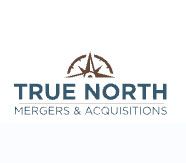What Are Intangible Assets, and Why Do They Matter in Modern Business?

True North Mergers & Acquisitions
October 25, 2024

How we think about corporate value has dramatically shifted in the last few decades. Where a company's value was once determined by its physical assets—factories, equipment, inventory, and other tangible goods—today's most valuable companies own surprisingly few of them.
Take tech giants like Google and Microsoft—the bulk of their wealth comes from non-physical assets like software, data, and intellectual property.
But intangibles aren't just critical to heavy-hitting brands; they are becoming increasingly important to businesses far beyond Silicon Valley. Why? We'll tell you everything you need to know here.
Types of Intangible Assets
Let’s explore some common examples of intangible assets. Like physical objects, intangibles come in many forms. In modern business, the most common examples of intangible assets are:
- Intellectual property: This category includes patents, copyrights, and trade secrets. This includes everything from innovative processes and creative works to confidential business information that gives a company its competitive edge.
- Brand identity: A company's name and logo aren't just symbols; they're the face of the reputation and customer loyalty you've worked hard to build.
- Customer relationships: These are much more than names on a client roster. They represent the trust and ongoing connections you've cultivated with your customers over time.
- Software and data: These intangibles include the proprietary software you use to operate and the data you collect to make informed decisions about your future.
Why Do Intangible Assets Matter to Business Owners?
Why intangible assets are important to business owners may seem obvious. Yet in many cases, business owners, particularly emerging leaders, may not fully recognize or protect the value of their intangible assets. Business owners should protect their intangible assets because they:
- Add value: Intangible assets offer value that extends beyond your business. Protecting them allows you to leverage them when it comes time to expand, appeal to investors, or make an exit.
- Give you a competitive advantage: Failing to account for intangibles may mean leaving money on the table at closing. When protected, intangible assets can skyrocket your company’s value.
- May generate revenue: Intangible assets can be licensed, sold, or used to create new revenue streams—often with higher profit margins than traditional product sales.
- Reduce vulnerability: Intangible assets like customer and employee data, software code, and contracts are often at great risk from hackers. Protecting these assets not only secures your business operations but also helps prevent data breaches that could damage your reputation and lead to compliance issues.
How Do You Protect Intangible Assets?
Intangible assets often don't appear on a traditional balance sheet because they are difficult to value. Think about the difference between trying to value a tool and die shop full of machinery and trying to estimate the worth of your company's brand reputation or proprietary processes.
Intangible vs tangible assets are much harder to quantify. And if you do not properly identify and protect these assets, you risk losing serious business value. To ensure you’re protected, you must consider:
- Legal protections like trademarks, patents, and copyrights
- Working with an experienced valuation expert to assess the value of your intangibles
- Have staff and vendors who come into contact with trade secrets sign NDAs
- Invest in employee training to ensure everyone understands the importance of protecting intangible assets
- Conduct regular audits to identify potential vulnerabilities to your intangible assets
Questions About Intangible Assets? We Have Answers.
Whether you need help identifying intangible assets, auditing, or protecting them, our team has the experience to ensure you are prepared. Take the first step towards achieving your goals by connecting with our Managing Director of Project Delivery, Erica Gilson, or President, Michael Hubsmith, to learn more.
Subscribe to our Newsletter
Sign up for the latest industry insights from True North Mergers & Acquisitions.




